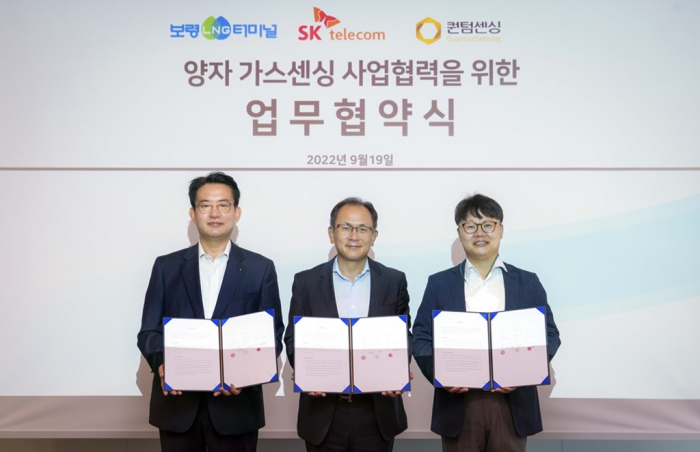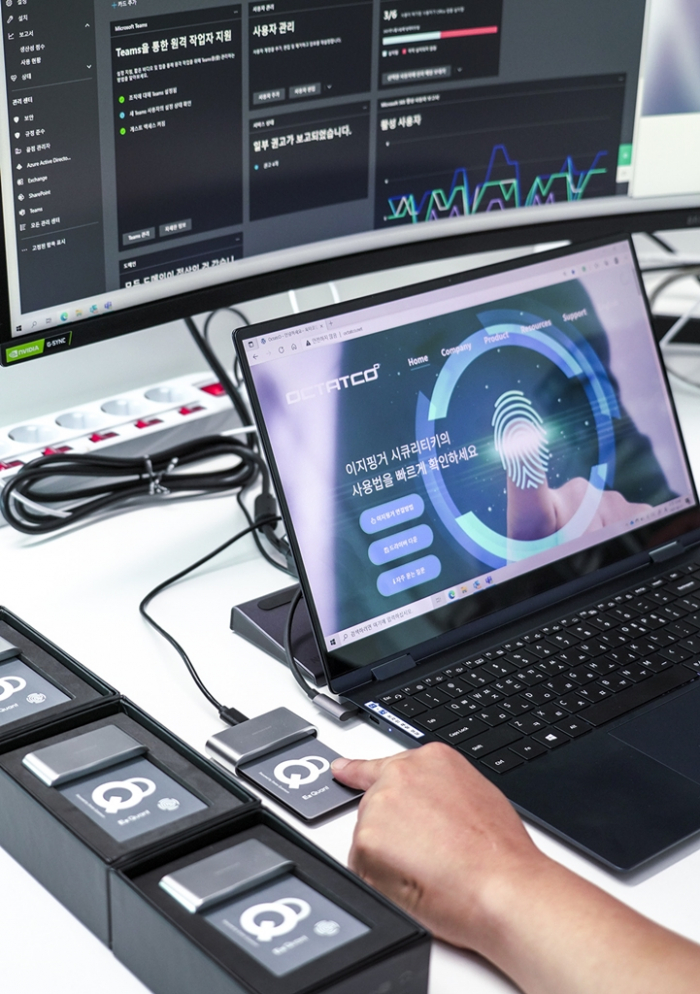Tech, Media & Telecom
SK Telecom expands business portfolio with quantum tech
Korea’s No. 1 mobile carrier plans to apply the technology to various industries such as the semiconductor and bio sectors
By Sep 20, 2022 (Gmt+09:00)
3
Min read
Most Read
LG Chem to sell water filter business to Glenwood PE for $692 million


KT&G eyes overseas M&A after rejecting activist fund's offer


Kyobo Life poised to buy Japan’s SBI Group-owned savings bank


StockX in merger talks with Naver’s online reseller Kream


Meritz backs half of ex-manager’s $210 mn hedge fund



South Korea’s top mobile carrier SK Telecom Co. is expanding its business portfolio with quantum technology, even into industries that are unrelated to the company’s main field, as the telco has been nurturing the science sector for more than a decade to develop a future growth engine.
Quantum technology is a class of technology that works by using the principles of quantum mechanics, including quantum entanglement and quantum superposition.
SK Telecom unveiled on Tuesday a quantum-based gas sensing system for the first time in the country that can detect gas leaks in large storage tanks in real-time. The telco is scheduled to install the system at a liquified natural gas terminal in Boryeong, about 170 kilometers southwest of Seoul, next year.
Currently, large gas facilities mainly use systems based on chemical reactions or infrared light technologies to detect gas leaks. Those systems are easily affected by winds and their detection ranges are short. In addition, it is hard to measure the gas concentration.
SK Telecom’s system is based on quantum technology that detects gas leaks and converts it into electric signals. That allows users to identify various information such as the concentration and volume while monitoring from the leakage point to the diffusion direction in real-time.
The company will also apply quantum technology to various other industries such as the semiconductor and bio sectors to develop an ecosystem for the field.
“We will apply quantum technology not only to the gas sensor but also to lidar for self-driving cars to improve public safety and convenience,” said SK Telecom Chief Development Officer Ha Min Yong. A lidar sensor detects and tracks vehicles, pedestrians and other obstructions to help autonomous vehicles safely navigate at various speeds.
BEAR FRUIT FROM INVESTMENTS FOR OVER DECADE
The telecom unit of South Korea’s No. 2 conglomerate SK Group, established a quantum tech lab in August 2011 after the company selected the field along with the bio and semiconductor sectors as future growth engines to reduce its reliance on its core telecommunication business.
SK Telecom has made achievements in the quantum key distribution (QKD), quantum random number generation (QRNG) and quantum sensing sectors since then.
In 2018 February, the company acquired ID Quantique SA (IDQ), the world leader in quantum-safe crypto solutions, for $65 million, upgrading its quantum technology.

Chipsets equipped with the carrier’s QRNG technology significantly improved security for information technology devices such as smartphones. The company developed the world’s first QRNG chipset for mobile phones and installed it in Galaxy A Quantum, a 5G smartphone of Samsung Electronics Co. The model, which protects personal information with quantum random number encryption keys, sold more than 300,000 units in the first six months of its launch.
Last year, South Korea selected SK Telecom as the top player for the government-led pilot infrastructure project for quantum cryptography communication.
Write to Jeong-Soo Hwang at hjs@hankyung.com
Jongwoo Cheon edited this article.
More to Read
-
 Future mobilitySK Telecom expands system for self-driving in Seoul
Future mobilitySK Telecom expands system for self-driving in SeoulJun 28, 2022 (Gmt+09:00)
1 Min read
Comment 0
LOG IN


